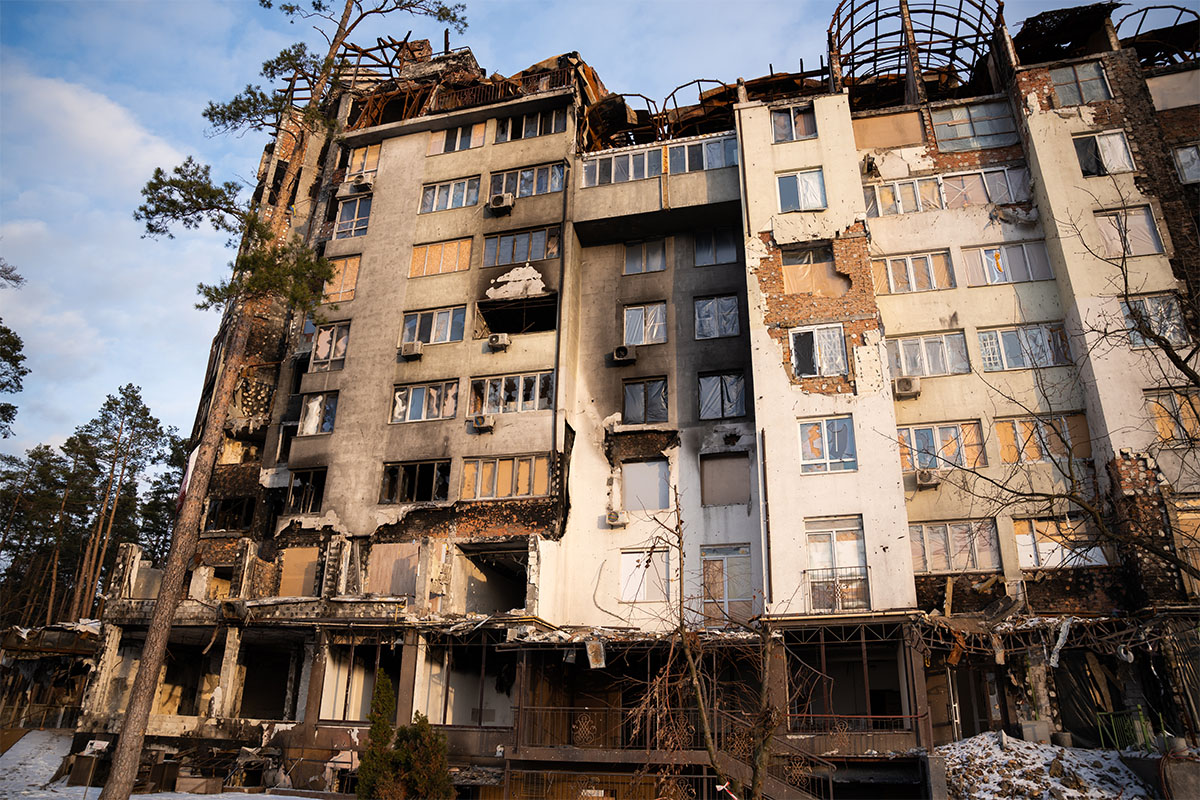Ukraine and the international community must empower the whole of society in building the country’s future.
Are those in power in Ukraine ready for transparent expenditure on Ukraine’s reconstruction? Yes, they are. The reason is not necessarily that they are honest; they just have no other choice. Ukrainian society has changed dramatically during the war, and it now has zero tolerance for corruption. Corruption has turned into a synonym for treason and the betrayal of national interests. It is an unforgivable sin in the context of the war.
Meanwhile, civil society is hyper-sensitive to corruption, and its response to any wrongdoing is likely to be acute. References to so-called lynch law – meaning aggravated people taking the law into their own hands to punish those they are dissatisfied with – grow increasingly frequent in public discussions.
In 2014, Ukrainian politicians were given the ‘trash bin’ treatment. People outraged by MPs’ conduct literally grabbed them in the streets and forced them into trash bins (see examples here, here and here).
However, responses towards politicians and governmental officials are likely to be considerably more forceful today in comparison with 2014. A woman throwing a Molotov cocktail into the house of the minister who has stolen money for the construction of a new maternity house in Mariupol is unlikely to be condemned. There is no army of security guards who can protect him from millions of furious citizens.
Politicians already feel this threat, with society saying, ‘Do not give us a pretext to take the law into our own hands’. In response, politicians and governmental officials seem to plead, ‘Look, we’re doing our best’.
Society at the community level will be able to control and monitor public spending, with a key role played by local civil society organisations – organisations that know each official and unscrupulous businessman personally.
Since the introduction of martial law, the visibility of the financial flows coming into Ukraine from all over the world has been obscured. The public and journalists have seen access to many registers closed. In particular, information on transactions involving real estate (register of real rights to immovable property) and entries in trade registers (register of legal entities, individual entrepreneurs and public organisations) are not currently public – perhaps for good reason. But when Ukraine defeats Russia, society will put pressure on the government to restore access to all the information as it used to be.
Local Scrutiny is Key
Public institutions will have to regularly report on their expenditure for the thousands of projects that will be needed. Society at the community level will be able to control and monitor public spending, with a key role played by local civil society organisations – organisations that know each official and unscrupulous businessman personally.
This monitoring cannot be left to respectable international auditing companies and organisations with offices in Brussels, Paris and London. At best, they can make sure that all the numbers are correct in the reports they receive, but that is far from enough if we want real oversight, rather than merely a show of control.
Regional organisations have a better understanding of the specific problems and needs in their region. Local civil activists and journalists are the most motivated to perform their work. The reason is obvious: their children will go to the kindergartens and schools that are rebuilt, and they want that to happen ‘in accordance with the best global practices’.
During the first days of the war, Ukrainian President Volodymyr Zelenskyy emphasised in his video messages that everything would be restored. ‘We will build a better version of Ukraine. We will employ the best practices from all over the world’, he promised. Those words have given Ukrainians hope. They encourage us to fight for a better future. We can already picture this beautifully reconstructed Ukraine in our minds.
Civil society organisations that will monitor the integrity of the rebuilding process have been exhausted by the war; they need to be supported by Western donors, experts and fellow NGOs committed to helping the Ukrainian people.
In fact, save for practical matters such as financing and thorough planning which can be achieved, corruption and lies are the only obstacle between the Ukrainian people and this cherished dream.
Foreign Governments and Investors Should Not be Concerned
Foreign investors and governmental officials are concerned about whether Ukraine has the ability to efficiently implement the range of infrastructure and other projects needed during the so-called ‘big reconstruction’. The short answer is yes, but the civil society organisations that will monitor the integrity of this process have been exhausted by the war; they need to be supported by Western donors, experts and fellow NGOs committed to helping the Ukrainian people.
Ukraine already has numerous inspiring examples of civil society’s impact on the integrity and transparency of budget policy. For instance, the ProZorro Project was set up by civil society organisations and activists to fight corruption in the public procurement system. The initiative has succeeded – public procurement is indeed more efficient and less prone to corruption.
Civil society organisations have also created the Nashi Groshi (Our Money) website, which publishes analytical articles and investigations on the use of public funds based on open data from registers and official resources. This resource helps citizens understand whether public programmes are efficient, and whether public spending is undertaken in a manner that will achieve specific goals. Furthermore, the project teaches journalists how to use the data and how to consult on the transparency and openness of public expenditure.
When it comes to the multi-billion dollar flows that will be needed for Ukraine’s reconstruction, such initiatives will be at least as useful as law enforcement authorities and international audits. In fact, they might be of even more use since they allow civil society, journalists and all of Ukraine’s society to see how their future is being built.
The views expressed in this Commentary are the author’s, and do not represent those of RUSI or any other institution.

